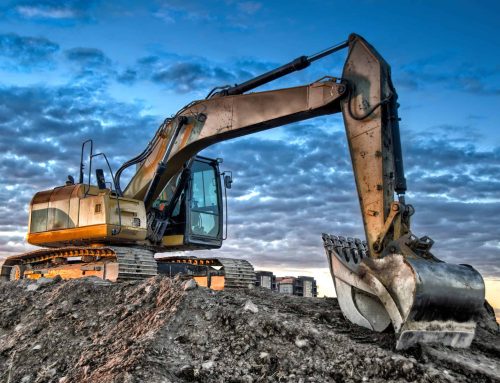Vehicle fires make up around 16 percent of the average 1.3 million fires reported to US fire departments each year. Understanding how vehicle fires occur, what to do in the event of a vehicle fire, and ways to prepare for vehicle fires can help you stay safe should your vehicle catch fire.
How Vehicle Fires May Occur
Vehicles require combustion, high heat, flammable liquids (such as gasoline), and friction to function. These elements create many different scenarios in which cars can catch fire, including: fuel system leaks, electrical system failures, spilled fluids, overheating engines and/or catalytic converters, battery issues and car crashes.
If you smell burning plastic or rubber, or see smoke/flames, it’s important to respond immediately to avoid injury and further damage to the vehicle.
What to Do in the Event of a Vehicle Fire
If your vehicle catches fire, pull over as quickly as possible. When you’ve safely come to a stop, turn off the engine and get every passenger out of the car immediately. It’s recommended that everyone move to a location at least 100 feet away from the vehicle fire and clear of any traffic. Once everyone is safely away from the fire, call 911.
Avoid fighting a fire yourself. If you choose to use a fire extinguisher, stay at a safe distance and use only an extinguisher labeled for Class B and Class C fires. If you suspect there is a fire under the hood or in the trunk, do not open it. The action of opening the trunk/hood introduces more oxygen to the fire, allowing it to grow.
Ways to Prepare
The first line of defense against vehicle fires is having your car regularly serviced by a trained mechanic. Well maintained vehicles are less likely to have fires.
It’s also important to learn the potential warning signs of an impending vehicle fire:
- Repeatedly blown fuses
- Oil or fluid spots under your car
- Exposed wiring
- Loud sounds from the exhaust system
- Rapid changes in fuel or oil levels
- Rapid changes in engine temperature
- A missing oil cap
- Broken or loose hoses
If you have to transport gasoline or propane in your vehicle, make sure they are sealed tightly, that the cans/tanks stay upright, and keep your windows open to avoid fumes from building up.
As with any time you operate a moving vehicle, it’s important to pay full attention to the road and vehicles around you, and to drive as safely as possible.
Fire Systems, Inc.
Just as it is important to prepare for fires in your personal vehicle, it’s important to prepare for fires in commercial/industrial vehicles and machinery. Vehicle fire suppression systems can detect and suppress fires before they have a chance to do severe damage to your equipment. These systems protect the operator from severe or fatal injuries, prevent downtime and save equipment.
In business since 1986, Fire Systems, Inc. is the Atlanta-area’s trusted company for all things commercial and industrial fire protection. If you have any questions or concerns regarding vehicle fire suppression systems and the fire-readiness of your company’s machinery, consider Fire Systems, Inc. Visit our website or give us a call today at 770-333-7979.





